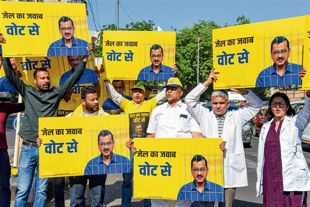
Professor Richard Thaler has been awarded the Nobel Prize in Economics for his contribution to behavioural economics. However, he is best known for his theory of “nudge”, which he describes as a tool that changes the behaviour of humans. The behavioural economist says that nudges is ethical and enables people to make economic decisions. Government as well private agencies can design nudges to help people in taking “right” decisions. For example, while booking a railway ticket online, one gets an option to buy travel insurance for a paltry sum. Thaler calls it a nudge.
It can be argued that nudges can be misused by both the government and private entities. In India, the government is using good nudges such as Swachh Bharat Abhiyan and voluntary opting out of subsidy schemes. Then there are evil nudges that are used tacitly to alter food habits of the people. Thaler, who supports the market economy, is against any kind of coercion. Nudging should be devoid of any deception. People must have a choice to opt out of it at any moment and nudges must be aimed at general welfare.
As we live in a global village, it is only natural that pro-Modi voices have sought to appropriate Prof Thaler by regurgitating his old social media post as the ultimate endorsement of the demonetisation drive. They conveniently missed the economist’s second post where he corrected himself hours after the demonetisation bombshell. Prof Thaler had initially said: “This is a policy I have long supported. First step toward cashless and [a] good start on reducing corruption.” But, his optimism was short-lived. After learning of the introduction of Rs 2,000 notes, a bewildered Prof Thaler course corrected within minutes; “really? Damn”. Prof Thaler’s two tweets prove that good economic policies are often not successful because of improper implementation. It is the same story with GST. Despite a national consensus on shifting to the new tax regime, it has been severely criticised because of implementation issues. Rather than trying to score debating points, the Centre ought to heed the Nobel Laureate’s homily about the evil nudges.



























